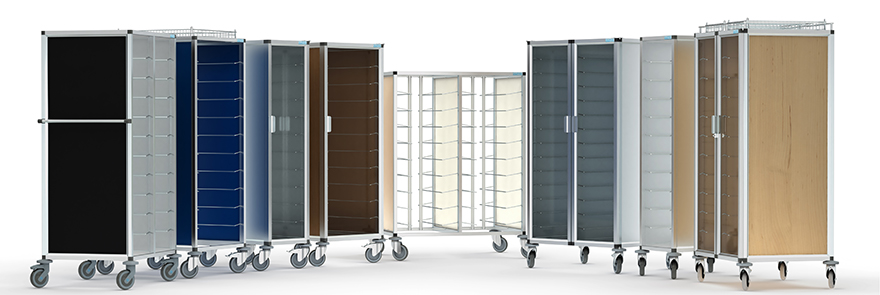The word Afruimwagens refers to specialized vehicles or carts used for transporting, clearing, and collecting goods, materials, or waste. For farmers, an Afruimwagen may mean a cart to collect harvested crops. For municipal services, it could be a truck designed for waste clearing. They are no longer just carts with wheels; they are now efficient carriers, often built with hydraulics, automated systems, and energy-saving features.This article explores the evolution, purpose, and growing importance of Afruimwagens in modern society. From farming to smart cities, their role is becoming broader and more innovative.
What Are Afruimwagens?
Afruimwagens are clearing trolleys or bussing carts widely used in the hospitality industry, especially in restaurants, hotels, and catering services. The word “afruimwagens” comes from Dutch, where “afruimen” means “to clear away” and “wagens” means “carts”.They are designed to help staff efficiently collect dirty dishes, glasses, and cutlery from tables and transport them to washing areas. Most afruimwagens are made of durable materials like stainless steel, aluminum, or reinforced plastic, and they often come with multiple shelves or trays for better organization.
In simple terms, an afruimwagen is a mobile, practical tool that makes clearing and cleaning tables faster, reduces staff workload, and improves service flow in busy dining environments.
The Role of Afruimwagens in Everyday Industries
Afruimwagens are not limited to one sector. Their use extends across several areas:
- Agriculture: Collection of harvests, transport of hay, and removal of excess soil or waste.
- Construction: Moving rubble, sand, and cement between sites.
- Municipal services: Waste clearing, recycling collection, and street cleaning.
- Logistics: Helping in warehouse operations where bulk movement is necessary.
- Environmental management: Clearing recyclable and non-recyclable material in eco-friendly systems.
A Comparative Table of Afruimwagens Types
Here is a clear, easy-to-read table presenting common types of Afruimwagens and their primary functions:
| Type of Afruimwagen | Industry Use | Key Features | Benefit to Users |
| Agricultural Afruimwagen | Farming | Large bins, hydraulic lifts | Fast crop collection, reduces labor |
| Construction Afruimwagen | Construction | Reinforced body, heavy load capacity | Handles debris and raw material easily |
| Waste Clearing Afruimwagen | Municipal services | Compactors, sorting compartments | Efficient waste collection and recycling |
| Logistic Afruimwagen | Warehousing | Modular designs, mobility in tight areas | Faster warehouse material handling |
| Eco-Friendly Afruimwagen | Environmental use | Electric engines, low-emission design | Reduces carbon footprint, sustainable clearing |
Why Afruimwagens Matter Today
Their growing relevance can be explained by a few key factors:
- Efficiency in Modern Agriculture
With global food demand rising, agriculture needs vehicles that reduce manual work and save time. Afruimwagens help by transporting harvests quickly, preserving produce quality, and cutting costs. - Urban Waste Management
Cities are struggling with waste management challenges. Afruimwagens designed for municipal use are crucial for collection and recycling, keeping urban spaces clean and sustainable. - Sustainability in Industry
Eco-friendly Afruimwagens reduce fuel use and carbon emissions, aligning with international sustainability goals. - Versatility Across Sectors
The modular and customizable nature of Afruimwagens makes them adaptable for diverse industries, from farms to factories.
The Evolution of Afruimwagens
Afruimwagens began as simple carts wooden frames with wheels, pulled by animals or humans. Over the years, technological advancements reshaped them into advanced vehicles.
- Early stage: Wooden carts used in farming to collect harvests.
- Modern stage: Integration of hydraulics, mechanized loaders, and compactors.
- Future stage: Smart, AI-powered Afruimwagens that can operate autonomously.
Challenges Faced by Afruimwagens
- Maintenance costs: Hydraulic and mechanical systems require regular servicing.
- Fuel dependency: Traditional models contribute to emissions.
- Initial investment: For smaller farmers or businesses, buying an Afruimwagen can be expensive.
- Urban congestion: Municipal Afruimwagens often struggle with narrow city streets.
Solutions to these problems include the rise of electric Afruimwagens, modular leasing options, and government subsidies in agriculture and waste management sectors.

Innovations in Afruimwagens
Recent years have seen notable innovations:
- Electric and hybrid Afruimwagens: Reducing emissions and lowering operational costs.
- AI integration: Smart routing for waste collection to save time and fuel.
- Compact designs: Suitable for dense urban environments.
- Multi-purpose compartments: Allowing separation of materials for recycling.
Pros and Cons of Afruimwagens
Here’s a balanced look at the advantages and disadvantages:
| Pros | Cons |
| Boost efficiency across industries | High initial cost for businesses |
| Reduces manual labor | Maintenance can be expensive |
| Eco-friendly models available | Fuel-based models harm the environment |
| Adaptable for multiple sectors | Limited accessibility in small spaces |
| Improves sustainability in cities | Technology adoption still in progress |
Future Outlook for Afruimwagens
The future of Afruimwagens lies in automation and sustainability. Imagine fleets of smart Afruimwagens moving through farmlands or city streets, powered by clean energy and guided by artificial intelligence. They could map routes, sort materials on-site, and optimize workloads.
Governments and industries are likely to invest in Afruimwagens as part of larger eco-innovation policies. As cities grow denser and farms become more automated, Afruimwagens will remain central to efficiency and sustainability.
Conclusion
Afruimwagens have become an indispensable part of modern hospitality, balancing practicality with efficiency. They are not just carts but tools that allow restaurants, hotels, and catering services to maintain order, speed, and hygiene in busy dining environments. By streamlining the process of clearing dishes, they help staff focus more on customer service while reducing unnecessary delays.Whether made of stainless steel for durability, lightweight aluminum for easy handling, or sturdy plastic for cost efficiency, afruimwagens cater to different business needs. Their adaptability from small cafés to large banquet halls shows their relevance across industries.
Ultimately, investing in an afruimwagen is not only about managing operations but also about elevating the guest experience. Clean tables, faster turnover, and a professional atmosphere all contribute to higher satisfaction. In a competitive hospitality market, such efficiency-enhancing tools can make a significant difference.
FAQs on Afruimwagens
1. What is an afruimwagen?
An afruimwagen is a clearing cart used in restaurants, hotels, and catering services to collect dishes, glasses, and trays efficiently.
2. What materials are afruimwagens usually made of?
Most are made from stainless steel, aluminum, or strong plastic, ensuring durability and easy cleaning after heavy use.
3. What are the benefits of using an afruimwagen?
They improve staff efficiency, reduce clutter, maintain hygiene, and speed up the process of clearing large dining areas.
4. Are afruimwagens available in different sizes?
Yes, afruimwagens come in multiple sizes and designs, ranging from compact carts for small cafés to heavy-duty ones for hotels

